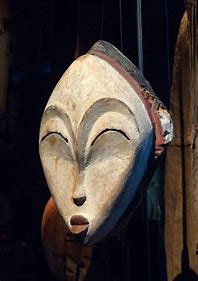Scientists identify cells that trigger a common hand condition















Scientists identify cells that trigger a common hand condition
British scientists have identified the cells that trigger a common hand condition, paving the way for new and more effective treatments.
Some 2.6 million Britons have Dupuytren’s disease, an age-related condition in which the fingers curl in towards the palm.
It occurs when knots of scar tissue form in the palmar fascia, the thin layer of tissue that lies under the skin of the palm, making it tougher. These knots eventually link together to form a thick cord that pulls one or more fingers over towards the palm.
This can lead to ‘clawed’ fingers, making it difficult for people to carry out day-to-day activities, such as doing up buttons.
With no drugs to treat the disease and physiotherapy unable to release ‘clawed’ fingers, surgery — in which the knotted cords are removed under general anaesthetic — is the main treatment.
Recovery, though, is lengthy (two weeks during which the hand is in a splint, followed by two months of physiotherapy). Moreover the condition recurs in up to half of cases because the diseased tissue simply grows back.
Surgery can also be risky if the diseased tissue is wrapped around nerves and arteries.
Now scientists have found a specialised cell type only present in the diseased tissue, which they believe is responsible for the scarring that leads to the ‘knots’ developing in the first place.
These cells could now be the target of drug treatments for the disease in its earliest stages.
What causes Dupuytren’s isn’t known. As well as having a genetic component, studies suggest it is more common in people with diabetes. High blood sugar levels are known to damage blood vessels and one theory is that some of these damaged blood vessel cells break away and form scar tissue.
The first sign of the condition is thickening or pitting of the skin of the palm. In severe cases people can lose the use of all their fingers within two or three years.
Dr Ross Dobie, a biologist at the University of Edinburgh and a researcher with the study, used single-cell RNA sequencing to analyse the function of thousands of cells taken from diseased fascia from patients with Dupuytren’s and from healthy tissue — this revealed the specialised cell type in the diseased tissue. Further experiments on these cells revealed a protein on their surface was key to scar formation.
The researchers found they could stop the protein from working using monoclonal antibodies — man-made proteins that mimic the role of antibodies to fight diseases. This led to changes in the cells that should prevent them from producing scar tissue, the Journal of Investigative Dermatology has reported. More studies are planned to learn how to stop the cells producing scar tissue.
‘Dupuytren’s is massively debilitating and we urgently need better treatments that can help slow, stop and prevent the problems that it causes,’ says Chris West, a consultant plastic surgeon at Leeds Teaching Hospitals NHS Trust and co-author of the study.
Neal Millar, a professor of orthopaedic surgery and musculoskeletal science at the University of Glasgow, adds: ‘These data are crucial in developing new targeted treatments to radically change the options available to patients suffering from Dupuytren’s.’
A simple test, in which the thumb is folded across the palm, could give early warning of aortic aneurysm, an abnormal swelling of the aorta, the body’s largest blood vessel.
It is usually symptomless until too late when the aorta bursts, causing internal bleeding.
The test, from Yale University in the U.S., involves holding up a hand and stretching the thumb as far as possible across the flattened palm. A thumb that reaches over the far edge of it may be a sign of diseased connective tissue and the aorta may be at risk of rupture.
Don’t panic if you test ‘positive’, say the researchers. It can take the aorta decades to swell to the point of rupture.
New PPE that protects medics better than masks
A new Covid-safe ‘hood’ can offer NHS workers more protection from the virus than standard PPE.
The Morecambe Bay Hood is a full-face, cleanable and reusable head and neck covering that is connected to a wearable air filter via a tube that delivers clean air continuously.
It also has noise reduction technology and a clear plastic screen at the front, allowing staff to communicate with patients more easily — currently a challenge with masks.
Fiona Macrae for the Daily Mail
Civil rights leader Jesse Jackson and wife admitted to hospital with COVID-19












Civil rights leader Jesse Jackson and wife admitted to hospital with COVID-19
Civil rights leader and former Democratic politician Jesse Jackson and his wife have both been admitted to hospital after testing positive for COVID-19, the group he founded has said.
Reverend Jackson 79, and his wife Jacqueline, 77, are being treated at Northwestern Memorial Hospital in Chicago, a statement issued by the Rainbow PUSH Coalition said.
"Doctors are currently monitoring the condition of both," the statement, authorised by the couple's son Jonathan Jackson, said.
"There are no further updates at this time. We will provide updates as they become available."
Rev Jackson is vaccinated against the virus and received his first dose in January during a publicised event as he urged others to receive the inoculation as soon as possible.
He has advocated for COVID vaccines for black people, who lag behind white people in America's vaccination drive.
Diagnosed with Parkinson's disease in 2017, Rev Jackson had spent decades advocating for the rights of black Americans and other minorities dating back to the turmoil of the civil rights movement of the 1960s, spearheaded by his mentor Martin Luther King.
He ran for the Democratic presidential nomination in 1984 and 1988, attracting black voters and many white liberals in mounting unexpectedly strong campaigns but falling short of becoming the first black major party White House nominee.
Reference: Sky News:
UK’s regulator approves first drug designed specifically to tackle Covid-19













UK’s regulator approves first drug designed specifically to tackle Covid-19
The medicines regulator has approved use of the first treatment in the UK using man-made antibodies to prevent and fight coronavirus.
Health Secretary Sajid Javid said approval of the first drug designed specifically for Covid-19 in the country is “fantastic news” and he hopes it can be rolled out for patients on the NHS “as soon as possible”.
The Medicines and Healthcare products Regulatory Agency (MHRA) said the clinical trial data they had assessed has shown Ronapreve may be used to prevent infection, treat symptoms of acute Covid-19 infection and can reduce the likelihood of being admitted to hospital due to the virus.
Trials took place before widespread vaccination and before the emergence of virus variants.
The drug, previously known as REGN-Cov2, was given to former US president Donald Trump when he was admitted to hospital with Covid-19 last year.
It is the first monoclonal antibody combination product approved for use in the prevention and treatment of acute infection from the virus for the UK.
Monoclonal antibodies are man-made proteins that act like natural human antibodies in the immune system.
The drug, developed by pharmaceutical firms Regeneron and Roche, is given either by injection or infusion and acts at the lining of the respiratory system where it binds tightly to the virus and prevents it from gaining access to the cells, the MHRA said.
Mr Javid said: “The UK is considered a world leader in identifying and rolling out life-saving treatments for Covid-19, once they have been proven safe and effective in our government-backed clinical trials.
“This is fantastic news from the independent medicines regulator and means the UK has approved its first therapeutic designed specifically for Covid-19.
“This treatment will be a significant addition to our armoury to tackle Covid-19 – in addition to our world-renowned vaccination programme and life-saving therapeutics dexamethasone and tocilizumab.
“We are now working at pace with the NHS and expert clinicians to ensure this treatment can be rolled out to NHS patients as soon as possible.”
MHRA interim chief quality and access officer Dr Samantha Atkinson said: “We are pleased to announce the approval of another therapeutic treatment that can be used to help save lives and protect against Covid-19.
“Ronapreve is the first of its kind for the treatment of Covid-19 and, after a meticulous assessment of the data by our expert scientists and clinicians, we are satisfied that this treatment is safe and effective.
“With no compromises on quality, safety and efficacy, the public can trust that the MHRA have conducted a robust and thorough assessment of all the available data.”
The regulator said the Government and NHS will confirm how the treatment will be deployed to patients in due course.
Professor Martin Landray, professor of medicine and epidemiology at the Nuffield Department of Population Health, University of Oxford, said the approval is “an important step forward” and that it could play “an important role” in helping patients at higher risk from the virus.
He said: “The challenge going forward will be in determining which patients should be prioritised for this treatment. Covid is not a rare disease and many people get better of their own accord after a few days of a nasty flu-like illness.
“It would be hard to justify giving what are likely to be limited supplies of a relatively expensive treatment to huge numbers of people who are likely to get better on their own.
“On the other hand, it may play an important role in patients who are at higher risk of developing severe infection and who are more likely to end up in hospital.”
Reference: By Aine Fox, PA
Aspirin trialled as part of potential treatment for type of aggressive breast cancer













Aspirin trialled as part of potential treatment for type of aggressive breast cancer
The cheap and widely-available drug is being tested to see if it can make tumours more sensitive to immunotherapy for patients with triple negative breast cancer.
The trial, funded by the Breast Cancer Now Catalyst Programme, will test the drug avelumab both with and without aspirin before patients have surgery and chemotherapy.
Successful results could lead to further clinical trials of aspirin and avelumab for incurable secondary triple negative breast cancer, which affects around 8,000 women in the UK each year.
The less common but often more aggressive type of breast cancer disproportionately affects young women and black women.
Dr Anne Armstrong, a consultant medical oncologist from the Christie NHS Foundation Trust in Manchester, will lead the study.
She said: "Our earlier research has suggested that aspirin can make certain types of immunotherapy more effective by preventing the cancer from making substances that weaken the immune response.
"Anti-inflammatory drugs like aspirin could hold the key to increasing the effectiveness of immunotherapy when used at the same time.
"Trialling the use of a drug like aspirin is exciting because it is so widely available and inexpensive to produce.
"We hope our trial will show that, when combined with immunotherapy, aspirin can enhance its effects and may ultimately provide a safe new way to treat breast cancer."
Dr Simon Vincent, director of research, support and influencing at Breast Cancer Now, said: "The 8,000 women diagnosed with triple negative breast cancer in the UK each year face the frightening reality of limited treatment options - we urgently need to address this.
"Research has already suggested aspirin could improve outcomes for many cancer patients and we hope that Dr Armstrong's trial will show the same to be true for patients with triple negative breast cancer, so that we can prevent more lives being lost to this devastating disease."
Breast Cancer Now said pharmaceutical company Pfizer had provided funding through an independent medical research grant, while also giving the researchers access to several Pfizer medicines.
Aspirin could be part of a new treatment for an aggressive form of breast cancer, if trials are successful.
Reference: Sky News:
Articles - Most Read
- Home
- LIVER DIS-EASE AND GALL BLADDER DIS-EASE
- Contacts
- African Wholistics - Medicines, Machines and Ignorance
- African Wholistics -The Overlooked Revolution
- African Holistics - Seduced by Ignorance and Research
- The Children of the Sun-3
- Kidney Stones-African Holistic Health
- The Serpent and the RainBow-The Jaguar - 2
- PART ONE: DIS-EASE TREATMENT AND HEALTH-3
- 'Tortured' and shackled pupils freed from Nigerian Islamic school
- King Leopold's Ghost - Introduction
- PART ONE: DIS-EASE TREATMENT AND HEALTH-4
- PART ONE: DIS-EASE TREATMENT AND HEALTH-2
- PART ONE: DIS-EASE TREATMENT AND HEALTH-5
- African Wholistics - Medicine
- Menopause
- The Black Pharaohs Nubian Pharaohs of Ancient Egypt
- The Mystery System
- PART ONE: DIS-EASE TREATMENT AND HEALTH-6
Who's On Line?
We have 96 guests and no members online
Ad Agency Remote
Articles - Latest
- The Male G Spot Is Real—and It's the Secret to an Unbelievable Orgasm
- Herbs for Parasitic Infections
- Vaginal Care - From Pubes to Lubes: 8 Ways to Keep Your Vagina Happy
- 5 Negative Side Effects Of Anal Sex
- Your Herbs and Spices Might Contain Arsenic, Cadmium, and Lead
- Struggling COVID-19 Vaccines From AstraZeneca, BioNTech/Pfizer, Moderna Cut Incidence Of Arterial Thromboses That Cause Heart Attacks, Strokes, British Study Shows
- Cartilage comfort - Natural Solutions
- Stop Overthinking Now: 18 Ways to Control Your Mind Again
- Groundbreaking method profiles gene activity in the living brain
- Top 5 health benefits of quinoa
- Chromolaena odorata - Jackanna Bush
- Quickly Drain You Lymph System Using Theses Simple Techniques to Boost Immunity and Remove Toxins
- Doctors from Nigeria 'facing exploitation' in UK
- Amaranth, callaloo, bayam, chauli
- 9 Impressive Benefits of Horsetail
- Collagen The Age-Defying Secret Of The Stars + Popular Products in 2025
- Sarcopenia With Aging
- How to Travel as a Senior (20 Simple Tips)
- Everything you need to know about mangosteen


